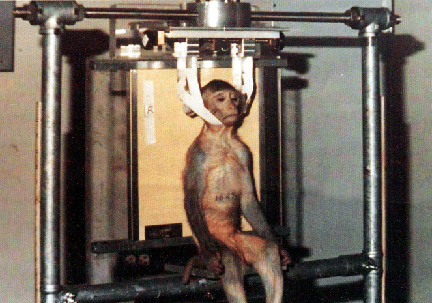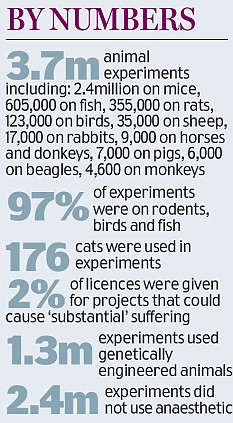 When last week, my father celebrated his second wedding, he asked my brother to say a few words after the ceremony writes Julia Stephenson
When last week, my father celebrated his second wedding, he asked my brother to say a few words after the ceremony writes Julia Stephenson
'I hope you won’t be offended that I haven’t asked you?’ he asked me nervously. Au contraire, I reminded him, there are some advantages to being female, and one of them is not having to speak in public very often.
However, when the British Union for the Abolition of Vivisection asked if I would give a two-minute talk, along some of their other supporters, at the House of Commons recently (they were promoting their popular campaign to abolish the testing of cleaning products on animals) I blanched with horror at the thought and promptly agreed.
The talk was predictably nerve-wracking, but what doesn’t kill you makes you stronger and it was hugely gratifying to hear at the end of the event that all the major parties have agreed to put a provision to stop testing cleaning products on animals in their next manifestos.
How depressing then, to read this week that experiments on animals went up 14% last year.
Scientists carried out 3.7million experiments on live animals in 2008 in the UK - the highest level for at least 20 years. During many of these trials animals are forced to ingest pesticides, industrial chemicals, artificial sweeteners, food additives, GM crops and cleaning products in such large quantities that they die. Most experiments are hardly life-saving research, and often just an opportunity for manufactures to make money by lining shelves with yet more unnecessary products.
 It is the seventh year in a row that the figure has gone up and follows pledges from scientists and the Government that they want to reduce animal suffering.
It is the seventh year in a row that the figure has gone up and follows pledges from scientists and the Government that they want to reduce animal suffering.
There were 4,598 experiments on monkeys - a rise of 16 per cent on the previous year - along with 6,074 experiments on beagles, 9,365 experiments on horses and donkeys, and 360 on cats.
Most horrifyingly, 2,4000 experiments did not use any anesthetic.
Fortunately many scientists and doctors are sticking their necks above the parapet and insisting that animal experiments are inaccurate, expensive and inhumane.
Read Dr Danny Perelman’s indictment of the vivisection industry here.
And meanwhile, we can all do our bit by buying products that are not tested on animals. Marks and Spencer and the Coop’s own brand cleaning products are amongst several that are not tested. Although it looks like the UK will ban testing on these products, it may take years before legislation becomes active.
Also look for the leaping rabbit logo on beauty products. Cosmetics are not tested on animals in the UK, but sometimes are in other parts of the world.
Join the BUAV and stay informed about we can all do to end this foul trade.
